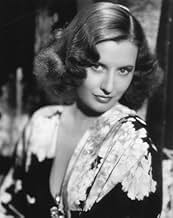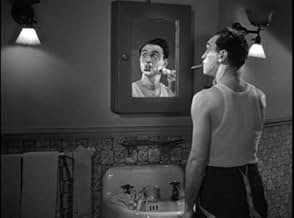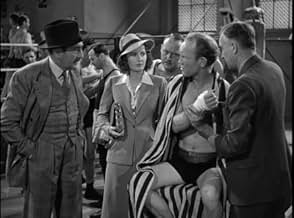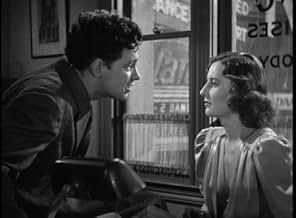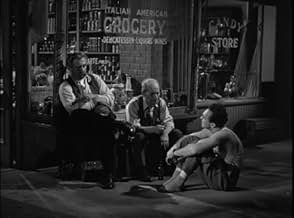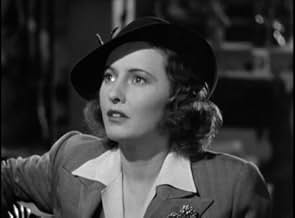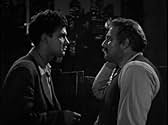IMDb RATING
6.8/10
2.3K
YOUR RATING
A poor young Italian man, who is a virtuoso on the violin, wishes to become a champion boxer to make a fortune for his family. But what is the road to success and happiness, and what is the ... Read allA poor young Italian man, who is a virtuoso on the violin, wishes to become a champion boxer to make a fortune for his family. But what is the road to success and happiness, and what is the price?A poor young Italian man, who is a virtuoso on the violin, wishes to become a champion boxer to make a fortune for his family. But what is the road to success and happiness, and what is the price?
- Nominated for 1 Oscar
- 1 win & 1 nomination total
Edward Brophy
- Roxy Lewis
- (as Edward S. Brophy)
Charles Halton
- Newspaperman
- (scenes deleted)
Stanley Andrews
- Driscoll - Fight Official
- (uncredited)
Gordon Armitage
- Fighter
- (uncredited)
Earl Askam
- Policeman
- (uncredited)
Don Brodie
- Reporter
- (uncredited)
Mushy Callahan
- Fight fan
- (uncredited)
Dora Clement
- Ill Ringsider Who Won't Leave
- (uncredited)
Featured reviews
A great film. A (very) young William Holden "hits" the bulls-eye on this one. And, I always love to see Barbara Stanwyck's hard, street smart "heart of stone" turn to mush. In a story that won't present you with many surprises as it unfolds, this film is held together by many fine performances. It's from that magical time, long ago, when New York City was inhabited by hustlers and gangsters and boxing was king. It was also inhabited by those of strong family values, the ones fighting that constant battle of the "easy" way or the right way. The mainstay, in that era (in film, anyway), was the ultimate triumph of good. Here, it is a joy to behold. The right choices, by both Stanwyck and Holden, seem very apparent to the viewer, but the right choices are rarely the first ones taken.
Eventually, they can be taken......
Eventually, they can be taken......
In this adaptation of the famous Odets play, a young man must choose between music and boxing. In his star-making role, Holden looks impossibly young, and turns in a surprisingly strong performance, given his inexperience. Stanwyck is quite good in a typical role of a tough broad with a soft heart. She helped Holden overcome his jitters and the two developed a legendary friendship during the filming. Cobb, only seven years older than Holden, is schmaltzy but touching as the latter's father. Levene is wonderful as Holden's brother-in-law. Menjou overacts. Mamoulian is at his best when depicting the family life of the Bonapartes. The fight scenes are brief but effective.
Well-written and well-acted vehicle serves as William Holden's entree to stardom. He was just 21 and is easier to recognize in his opening scene by his voice rather than his boyish looks and longish hair. Regardless of what it took to get him to give this performance, it is one that will be long remembered. Barbara Stanwyck plays the tough cookie who discovers she has a heart of gold, reminiscent of her role later perfected in "Meet John Doe." When asked if she was Adolphe Menjou's girl, Barbara replies "I'm my mother's girl." Great cast of supporting character actors add to enjoyment of a solid production whose best scenes involve family and not the ring. Good camera work, especially of those fight scenes, excellent sets, and great direction make this a surprisingly good night's entertainment. I avoided it for years thinking this was just another fight movie -- it is not -- and am now sorry that I waited.
William Holden became a star as a result of this film, but there is no question that Barbara Stanwyck is the real star of this picture. She gives a performance that is beautifully layered and Her performance is nothing short of marvelous (My favorite line is when she says, "I'm my mother's girl"). And those beautiful shoulders!
Everyone knows the story of the boy who is torn between a life of boxing and music. The screenplay is a product of the times that it was written in. How else can you explain dialogue that glorifies men beating their wives? Or the leftist remarks that are spoken by the Bonaparte's friend, Mr. Carp? A black boxer named "Chocolate"?! Never happen today.
Everyone is great. Lee J. Cobb as an Italian is heartbreaking, even if his accent is laid on a little thick (It's like watching Laurence Olivier in "The Jazz Singer"). Sam Levene is good as the brother-in-law. And Joseph Calleia as Fuseli, is wonderful. When Stanwyck enters Holden's dressing room after the fight, he says, "Out Miss Moon, this ain't no cocktail lounge." Wonderful. I would love to see Pacino ham his way through this role.
But it is Miss Stanwyck who stands out. We can be thankful that she gave Holden his opportunity and fought to keep him. We can be even more grateful for this wonderful performance.
Everyone knows the story of the boy who is torn between a life of boxing and music. The screenplay is a product of the times that it was written in. How else can you explain dialogue that glorifies men beating their wives? Or the leftist remarks that are spoken by the Bonaparte's friend, Mr. Carp? A black boxer named "Chocolate"?! Never happen today.
Everyone is great. Lee J. Cobb as an Italian is heartbreaking, even if his accent is laid on a little thick (It's like watching Laurence Olivier in "The Jazz Singer"). Sam Levene is good as the brother-in-law. And Joseph Calleia as Fuseli, is wonderful. When Stanwyck enters Holden's dressing room after the fight, he says, "Out Miss Moon, this ain't no cocktail lounge." Wonderful. I would love to see Pacino ham his way through this role.
But it is Miss Stanwyck who stands out. We can be thankful that she gave Holden his opportunity and fought to keep him. We can be even more grateful for this wonderful performance.
This is a wonderful, compelling, emotionally charged movie, with characters that are both interesting and likable. Of course, the central character of the movie is Joe Bonaparte, played by a young, gifted actor named William Holden. Joe's conflict, between his quest for fame as a prize fighter and his father's wish to become a concert violinist, although seemingly corny and contrived, actually works in this movie. And this can be attributed to the fine acting of all the players - Barbara Stanwyck, Lee J. Cobb, Adolph Menjou, and William Holden - who prove that high quality acting can transform a good script into a great script. One particularly intense scene is when Joe tries to play the violin - and he can't, leaving him devastated in the knowledge that he had squandered a gift and in the process had disappointed his father. This is a movie that is worth the time to watch and to enjoy.
Did you know
- TriviaWilliam Holden was so grateful to Barbara Stanwyck for her insistence on casting him in Golden Boy (1939), his first big role, that he reportedly sent her flowers every year on the anniversary of the first day of filming.
- GoofsJoe's chest is completely smooth during the big fight. Immediately after the fight, when he is dressed, he has chest hair visible at the top of his shirt.
- Quotes
Eddie Fuseli: This your girl?
Lorna Moon: I'm my mother's girl.
- Alternate versionsA video version in Argentina was lifted from a 16mm print from Columbia Pictures, in English with Spanish language subtitles. The credits of this version are translated in Spanish.
- ConnectionsEdited into Head (1968)
- SoundtracksWe're in the Money Now
Sung a cappella by Adolphe Menjou to the tune of the traditional
nursery rhyme "The Farmer in the Dell"
- How long is Golden Boy?Powered by Alexa
Details
- Release date
- Country of origin
- Language
- Also known as
- Zlatan decko
- Filming locations
- Eighth Avenue and 50th Street, Manhattan, New York City, New York, USA(Madison Square Garden, located at the West side of 8th Avenue from 1925 to 1968)
- Production company
- See more company credits at IMDbPro
- Runtime
- 1h 39m(99 min)
- Color
- Aspect ratio
- 1.37 : 1
Contribute to this page
Suggest an edit or add missing content

